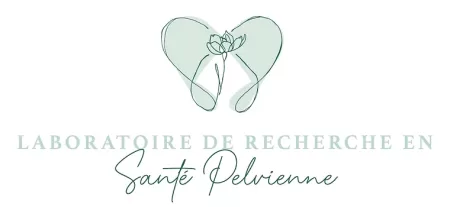Do you have pain during sexual intercourse?
Sexual pain experienced during intercourse in women not only affects the body but can also profoundly influence self-esteem, trust in relationships, and emotional intimacy within the couple. Know that there are solutions, and every woman facing these challenges deserves to be heard and supported in her healing journey.
Did you know that several common conditions can cause sexual pain? Perineal physiotherapy might help you identify the underlying causes of your symptoms and resolve them. Here are the most frequent conditions for sexual pain in women that can be addressed through perineal physiotherapy:
- Dyspareunia
- Vulvodynia
- Clitorodynia
- Vaginismus
- Myalgic tension of the pelvic floor
These conditions have serious sexual, psychological, and relational repercussions for women affected by them. Although vulvar pain affects a significant number of women (up to 1 in 4), it remains a very taboo subject.

Numbers/statistics:
- Vulvar pain affects up to 18% of women;
- Provoked vestibulodynia (recognized as the main cause of vulvar pain) affects sexual function, quality of life, and women’s psychological health;
- Vulvar pain is a chronic condition as common as low back pain, fibromyalgia, and osteoarthritis.
Perineal physiotherapy is your best ally in resolving sexual pain
Perineal physiotherapy is the first-line treatment to try for sexual pain in women because it is the most effective treatment without side effects! It is a key component in resolving this issue thanks to:
- A thorough evaluation (complete assessment of the pelvic region to understand the source of the pain, including internal and external examinations to evaluate the pelvic floor muscles, tissue condition, and sensitivity).
- Muscle activation exercises are prescribed for both in-session practice and at-home exercises. The use of devices such as biofeedback allows for the objective measurement of muscle recruitment and strength, providing realistic physical feedback to closely track the progress of the treatment.
- Global relaxation and precise muscle relaxation techniques to help relax the pelvic floor muscles and reduce anxiety associated with sexual intercourse.
- Global relaxation techniques, along with targeted tension release techniques, to relax pelvic floor muscles and alleviate anxiety related to sexual intercourse.
- Education, particularly on pelvic anatomy, contributing factors to vestibulodynia, and advice for self-care at home.
Emotional support and partner understanding are also important elements in coping with this condition and maintaining healthy intimate relationships.
Some definitions

Pelvic floor dry needling
This technique uses sterile, single-use dry needles to reduce inflammation, pain, and relax muscle fibers, making it an excellent complementary option to treat sexual pain. By specifically targeting muscle trigger points, this technique induces an analgesic response and muscle relaxation at the puncture site, accelerating the benefits of traditional physiotherapy treatments. The needle also provides a beneficial effect on the central nervous system. The professionals at the Cigonia team are trained to perform dry needling, even in more specific and complex body areas such as the pelvic floor, if this treatment is indicated.
The use of this expertise can also be integrated into the treatment plan for sexual pain, according to the recommendations of your therapist at Cigonia.
Laser therapy, a promising treatment modality for vulvar pain
Considering the large number of women experiencing vulvar pain, it is important to find new therapeutic modalities to help these women.
In recent years, high-intensity laser therapy has been integrated into the treatment of gynecological issues due to its analgesic and anti-inflammatory effects. This modality, already proven to be effective and safe for treating chronic muscle-related pain, could become a treatment for women with provoked vestibulodynia.
Did you know that the Cigonia and Exogénia clinics have established a promising partnership with the research laboratory of Professor Mélanie Morin (University of Sherbrooke) at the CHUS to develop new laser treatments adapted to vulvar pain? These treatments are offered free of charge to women suffering from provoked vestibulodynia (pain at the vaginal entrance) as part of a study aimed at evaluating this innovative treatment (certain criteria apply).
Are you a woman aged between 18 and 45 years old and experiencing pain at the entrance of the vagina upon pressure (penetration, tampon insertion, etc.)? Contact the research laboratory directly to verify your eligibility.

